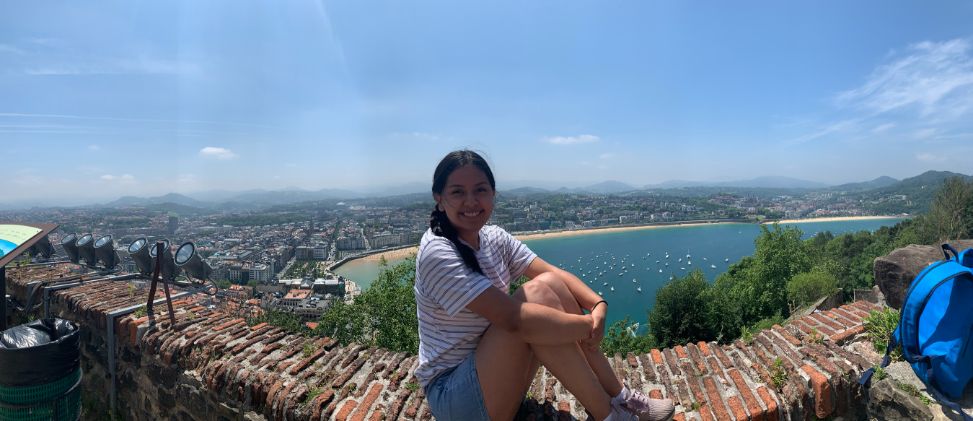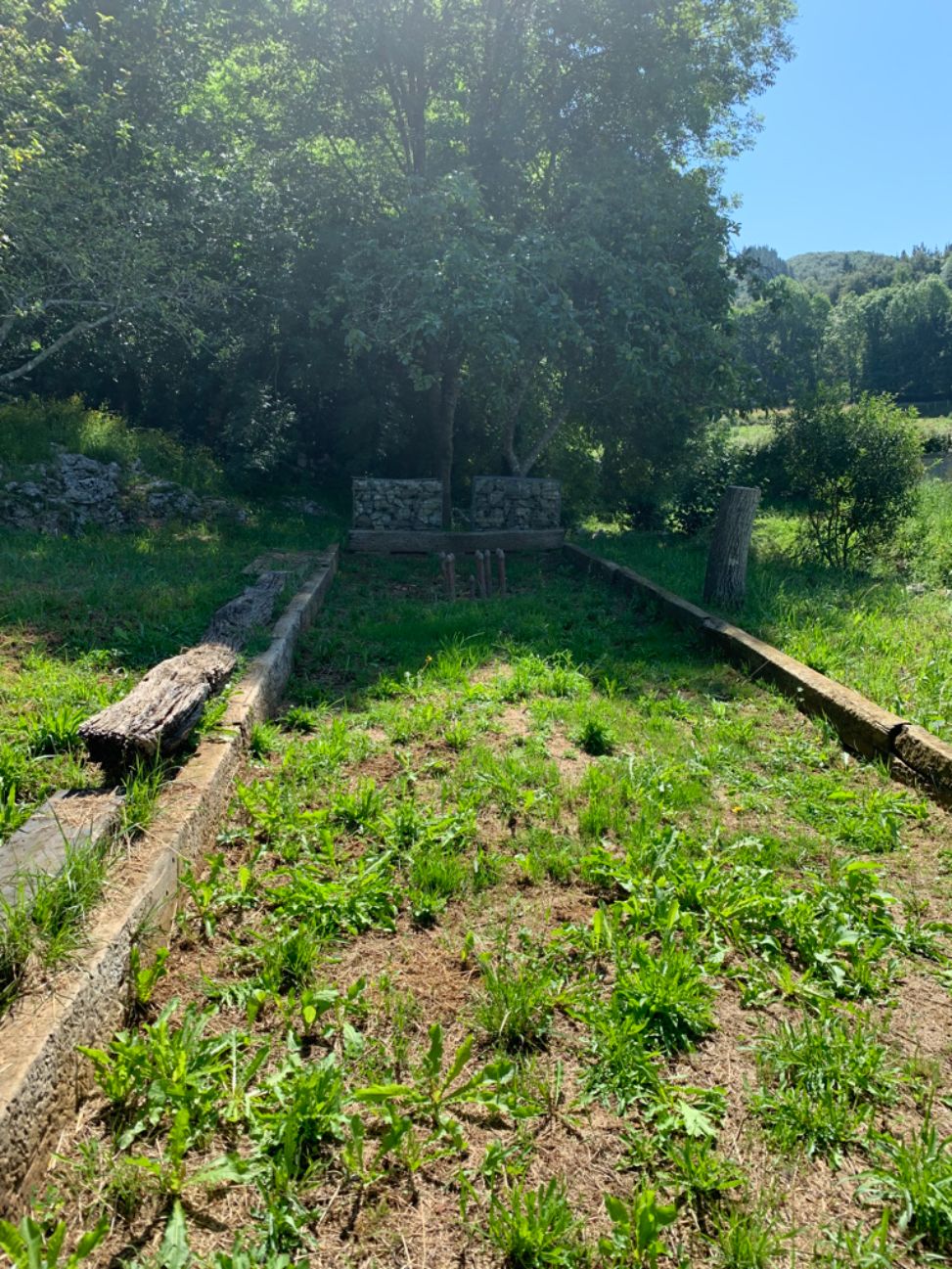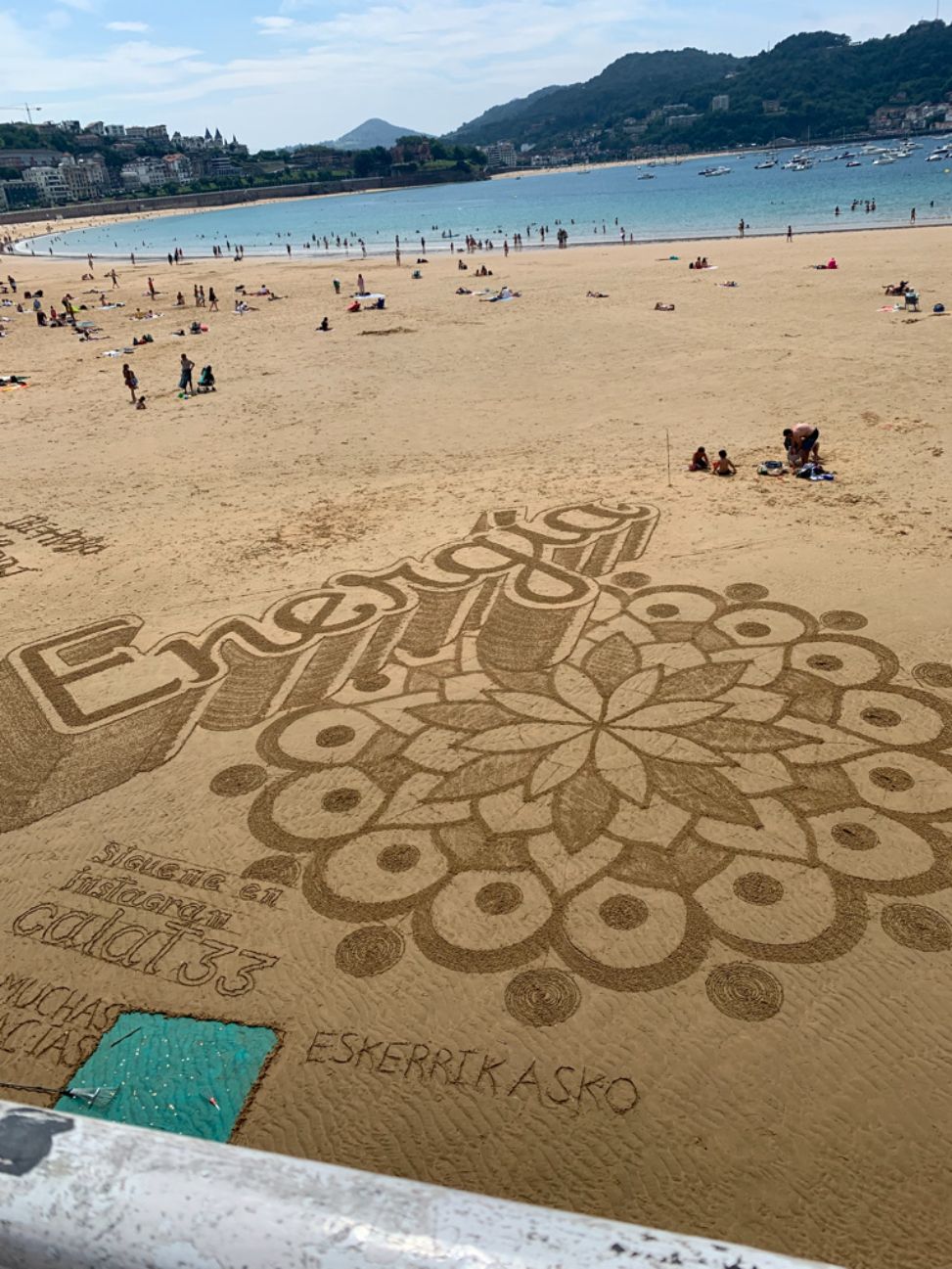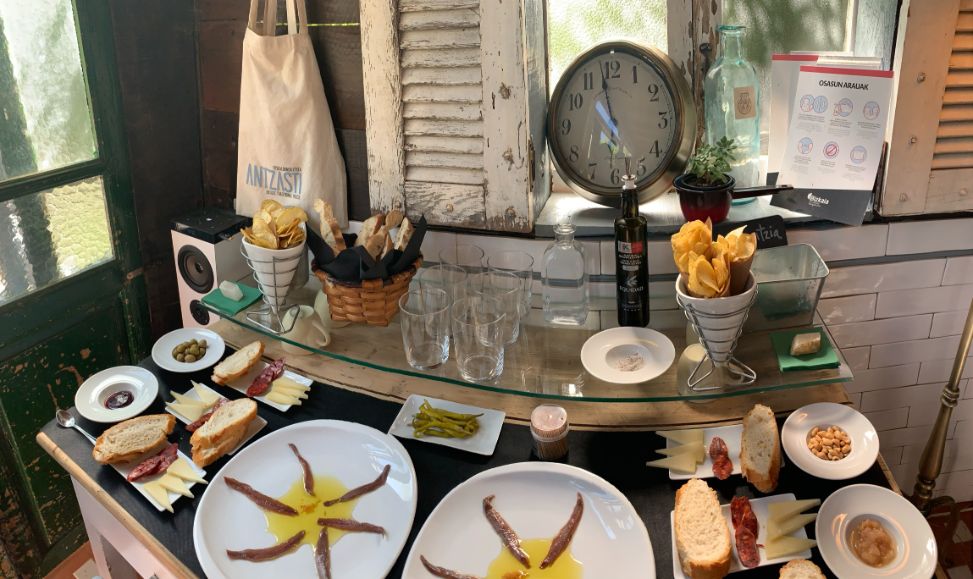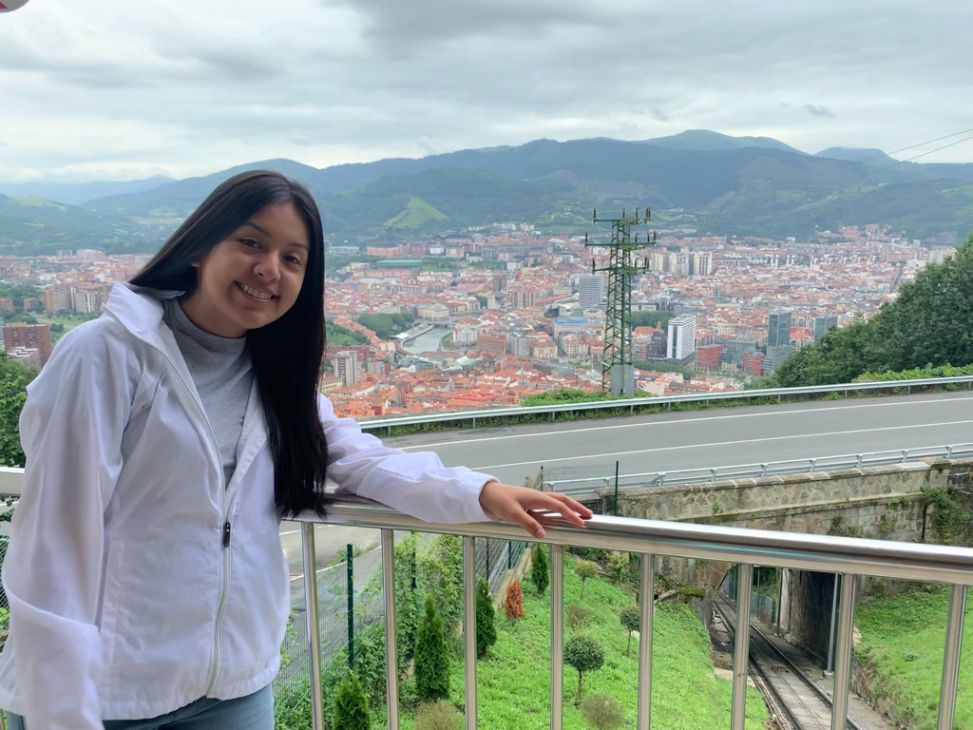Samara Perez Labra
About My Study Abroad Program
Major/Minor: Sociology + Public Policy and Spanish for the Professions (minor)
Program: Universidad de Deusto
Location: Bilbao, Spain
Email: airy@live.unc.edu
Term: Summer 2021
Why did you choose to study abroad and how did you select your program?
Since my first time traveling abroad, I knew that I had to experience a form of study abroad during my college career. I looked towards my designated study abroad advisor to seek guidance on what things mattered to me as I searched for a program that suited me. Above all, affordability was my main criteria. After that, I wanted to maximize the outcomes of my experience by seeing what credits and objectives I still needed and could gain from this program. Lastly, my advisor, Katelyn, said that Bilbao could offer big-city feel without the overwhelming sentiment that other Spanish cities could have. Similarly, Bilbao was conveniently located to where you could explore other smaller cities and towns. Fortunately for me, my study abroad program fulfilled my credit requirements, budget restraints, and comfortability levels.
What did you learn about yourself?
Without having any background knowledge of the Basque Country, I was delightfully surprised at how my selection of the program aligned with my potential research interests. In the Basque Country, you will notice that Spanish is alongside Euskara in terms of relevancy and importance. My time there, the Basque people were very proud of their Basque identity and preserving their language. As a person with Mexican indigenous roots who aspires to learn Otomi, I learned that I could look towards other corners of the world to help me understand more about myself and how to achieve my career goals. I also learned about history, culture, and Spanish which will all assist me in learning about myself.
What is one of your favorite memories from your program?
The organization of my program was one of the things I appreciated most from my study abroad experience because it provided a balance of scheduled excursions and free-time. On Fridays, our program would go on academic (but fun!) excursions with one including a museum visit to Antzasti en Dima located in the rural part of the Basque country. Here, we visited a traditional caserío which preserved household elements that showcased daily living in 19th and 20th century Basque country. Topics discussed during the tour were women’s role in domestic living, the development of urban transportation, and changes in culinary practices. Visiting the museum also highlighted the two sides of the same coin that is the Basque country: the city and country living. Aside from exploring the past and how it compares to other places, Dima, the town, was peaceful and majestic. On a personal front, the town of Dima reminded me heavily of my family’s beautiful rancho in Mexico which added a special layer of homesickness and yearning for more travel experiences. Despite these feelings of sadness, I was much more excited and happier at what Dima and the museum offered. Our visit there included a walk throughout Dima and its neighboring municipalities, a game of bolo alavés (similar to bowling but with wooden materials), and an expansive hamaiketako (small snack/lunch served around 11am).
What advice do you have for future study abroad students?
When I recount my study abroad experience with friends, it’s really funny when I explain all the obstacles that I faced abroad. Honestly, the hardships I faced abroad might be enough to make a person say no to ever leaving their own state. From dealing with no phone service to finding out my connecting flight was cancelled the day before departure date, suffice to say that I definitely experienced elevation in stress levels overseas. However, these difficulties were not enough to make me say good riddance to travel experiences (although I sure was close to believing in that while I was going through them). I had my fellow peers who helped me in what ways they could. To Caroline and Elizabeth, thank you for all your help! Because of all the new experiences you overcome together abroad, you will quickly realize that these seemingly strangers will become your closest companions overseas, and potentially good friends upon arrival back home. In addition to my peers-shortly-turned friends, I had a supportive program office who helped navigate me through my challenges. To the office of CIDE, thank you! Overall, it is destiny for one to experience challenges and uncertainties while abroad, but know that you can count on your peers and program office to help you.
How do you identify?
Student of color, First Generation College Student, Covenant Scholars, Scholarship Recipient
Memories
